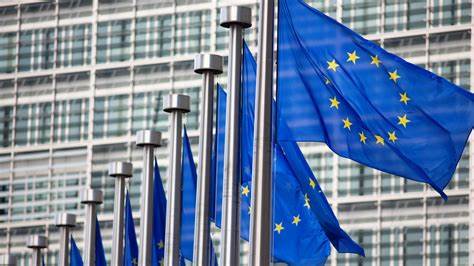The European Commission has today presented a proposal on transparency and targeting of political advertising, as part of measures aimed at protecting election integrity and open democratic debate.
The proposed rules would require any political advert to be clearly labelled as such and include information such as who paid for it and how much. Political targeting and amplification techniques would need to be explained publicly in unprecedented detail and, would be banned when using sensitive personal data without explicit consent of the individual. The Commission also proposes to update the current EU rules concerning EU “mobile citizens” and their right to vote in European and municipal elections as well as on European political parties and foundations.
Clear rules on transparency and targeting of political advertising
With the digital transition under way, people must be able to easily distinguish whether they are looking at paid political content – offline and online, and be able to participate in open debates, free from disinformation, interference and manipulation. People should be able to clearly see who sponsored a political advert and why. The main measures set out in the proposed Regulation on transparency and targeting of political adverts include:
- Scope: Political ads will cover ads by, for or on behalf of a political actor as well as so called issue-based ads which are liable to influence the outcome of an election or referendum, a legislative or regulatory process or voting behaviour.
- Transparency labels: Paid political advertising must be clearly labelled and provide a set of key information. This includes the name of the sponsor prominently displayed and an easily retrievable transparency notice with (1) the amount spent on the political advertisement, (2) the sources of the funds used and (3) a link between the advertisement and the relevant elections or referenda.
- Strict conditions for targeting and amplification: Political targeting and amplification techniques, which use or infer sensitive personal data, such as ethnic origin, religious beliefs or sexual orientation, will be banned. Such techniques will be allowed only after an explicit consent from a person concerned. Targeting could also be allowed in the context of legitimate activities of foundations, associations or not-for-profit bodies with a political, philosophical, religious or trade union aim, when it targets their own members. For the first time it will be mandatory to include into the ads’ clear information on what basis the person is targeted and to publish which groups of individuals were targeted, on the basis of which criteria and with what amplification tools or methods, among others. Organisations making use of political targeting and amplification will need to adopt, apply and make public an internal policy on the use of such techniques. If all transparency requirements cannot be met, a political add cannot be published.
- Fines for breaches: Member States will be required to introduce effective, proportionate and dissuasive fines when the rules on transparency of political advertising are breached. Under the proposed Regulation, National Data Protection Authorities will monitor specifically the use of personal data in political targeting and have the power to impose fines in line with EU data protection rules.
Update of EU rules on EU political parties and foundations and on electoral rights
The Commission has also proposed to revise the EU rules on funding of European political parties and foundations. The current framework had a number of loopholes, preventing the parties and foundations from operating and fulfilling their mission to represent the voice of EU citizens. The updates to the Regulation seek to facilitate European political parties interactions with their national member parties and across borders, increase transparency, in particular in relation to political advertisement and donations, cut excessive administrative burden and increase the financial viability of European political parties and foundations.
Finally, the Commission has proposed to update the current rules on European elections and municipal for EU citizens who reside in a different Member State to their state of nationality (“mobile EU citizens”). While there are around 13.5 million such citizens, very few exercise their right to vote in European and municipal elections. In order to ensure inclusive participation ahead of European elections in 2024, the Commission proposes targeted amendments to the existing Directives on electoral rights including, among others, obligation to inform such citizens proactively of their electoral rights, use standardised templates for registration as voters or candidates as well as use of language broadly spoken by the mobile EU citizens residing at the territory. The proposal also includes safeguards for EU mobile citizens not to be de-registered from electoral roll in the country of their origin.
Next Steps
The proposals will now be discussed by the European Parliament and the Council. To ensure that the 2024 elections to the European Parliament take place under the highest democratic standards, the aim is for the new rules to enter into force and be fully implemented by Member States by spring 2023, i.e. one year before the elections.










